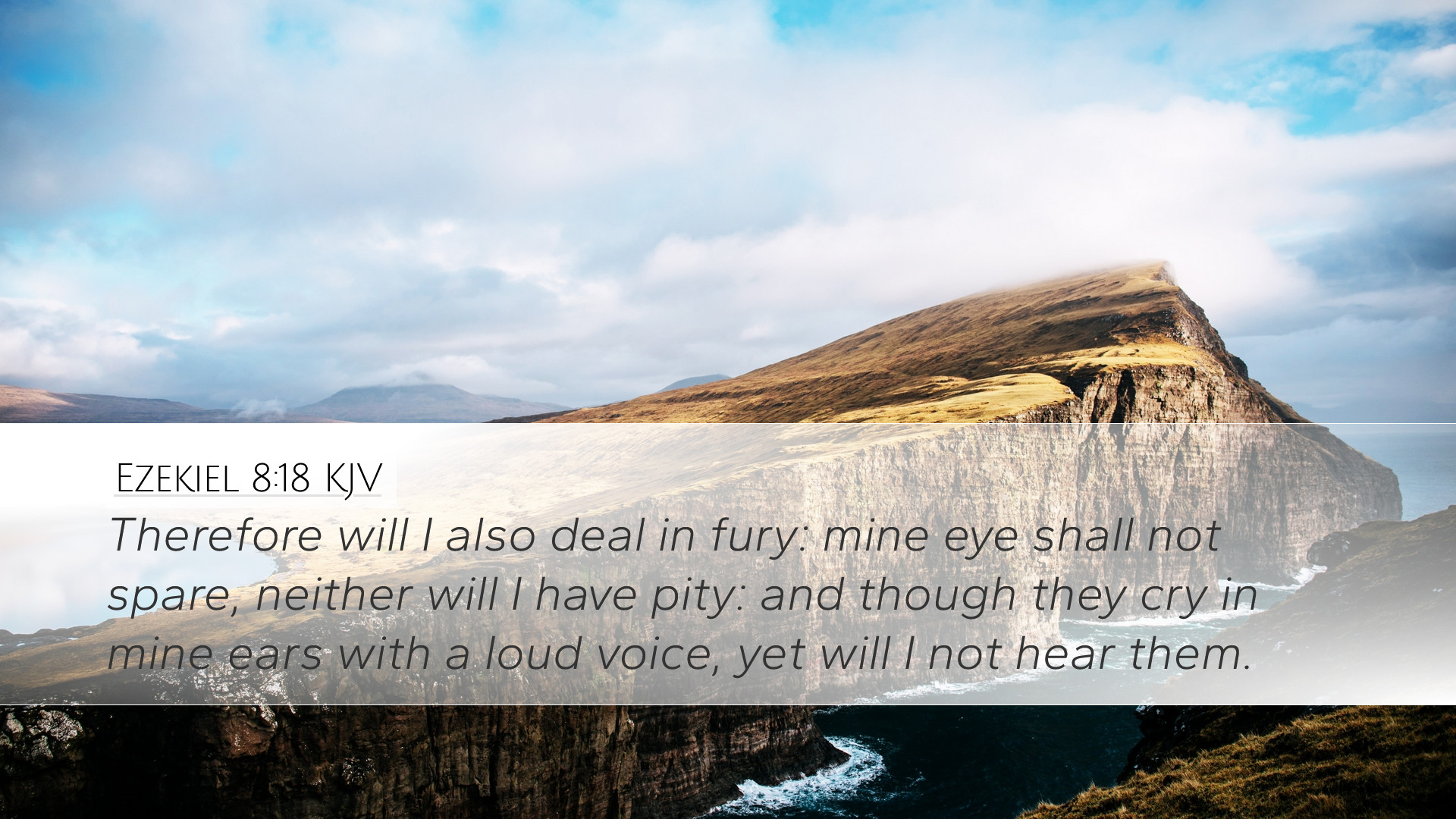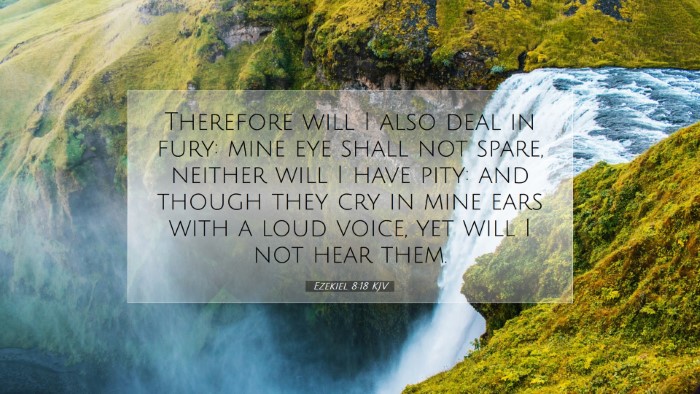Commentary on Ezekiel 8:18
Ezekiel 8:18 states: “Therefore will I also deal in fury: mine eye shall not spare, neither will I have pity: and though they cry in mine ears with a loud voice, yet will I not hear them.” This verse concludes a profound vision where Ezekiel is shown the abominations taking place in Jerusalem. The implications of this verse are significant, serving as a stark warning to the people of Israel regarding the consequences of their actions.
Contextual Overview
To comprehend the gravity of Ezekiel 8:18, one must first consider the larger context of Ezekiel's prophetic ministry. The prophet Ezekiel was exiled in Babylon, and through vivid visions, he was called to deliver God's message to a people who were deeply entrenched in idolatry and immorality. The vision in chapter 8 reveals the depths of sin within the temple, where the presence of God should dwell, highlighting a stark contrast between holiness and sinfulness. The significance of this passage lies in the divine response to the persistent unfaithfulness of the people.
Detailed Analysis
Divine Fury and Judgment
Matthew Henry emphasizes that divine fury reflects God's holiness responding to sin. In this passage, the Lord's serious displeasure is evident; He is not indifferent to the blatant sins of His people. The imagery of God’s eye not sparing indicates a complete and righteous judgment that will not overlook evil. God is portrayed as a righteous judge who must respond to the pervasive wickedness that has grieved Him.
God’s Pity and Human Outcry
Albert Barnes points out the stark contrast between human outcry and divine silence. The phrase “though they cry in mine ears with a loud voice” suggests a desperate plea for mercy. However, God’s refusal to hear underscores a pivotal moment when His patience has run out. The severity of their sins has reached a point where mercy is no longer an option. This serves as a warning to all: persistent unrepentance can lead to a time when God will no longer listen to cries for help.
Theological Reflections
Adam Clarke provides theological insights into the implications of this verse for modern believers. He remarks on the nature of God’s justice and mercy, explaining that while God is long-suffering, His justice demands a response to unrepentant sin. Ezekiel’s prophecy serves as a call for self-examination among God’s people. It invites contemporary audiences to reflect on their actions and avert neglecting God’s commands.
Applying the Lesson of Ezekiel 8:18
As we ponder the message of Ezekiel 8:18, it is critical to recognize the relevance of this passage to modern faith communities. Pastors, students, and theologians might consider the following applications:
- Holy Living: The text reminds believers of the call to holiness and the imperative to adhere to God's standards in both personal and communal practices.
- Awareness of Sin: This passage warns against complacency in the church regarding pervasive sins that may be overlooked or normalized. A keen awareness is essential for spiritual integrity.
- The Danger of Desensitization: Just as the Israelites became desensitized to their spiritual decline, the church today must guard against cultural influences that run counter to biblical truths.
Conclusion
Ezekiel 8:18 serves as a profound reminder of God's holiness and the consequences of unrepentant sin. The verses preceding it depict a chilling array of idolatrous practices occurring in the temple, leading to God's declaration of impending judgment. As we reflect on this prophetic message, let us approach God with humility, acknowledging our need for repentance and seeking to live lives that honor Him. In doing so, we embrace the fullness of God's grace while recognizing the seriousness of His judgment.


